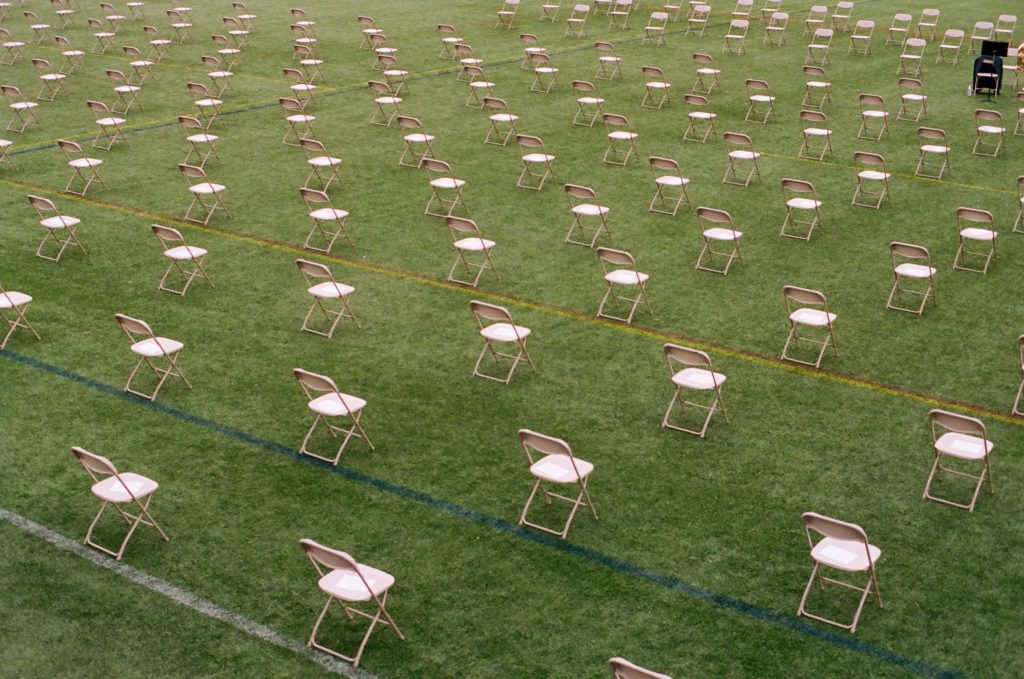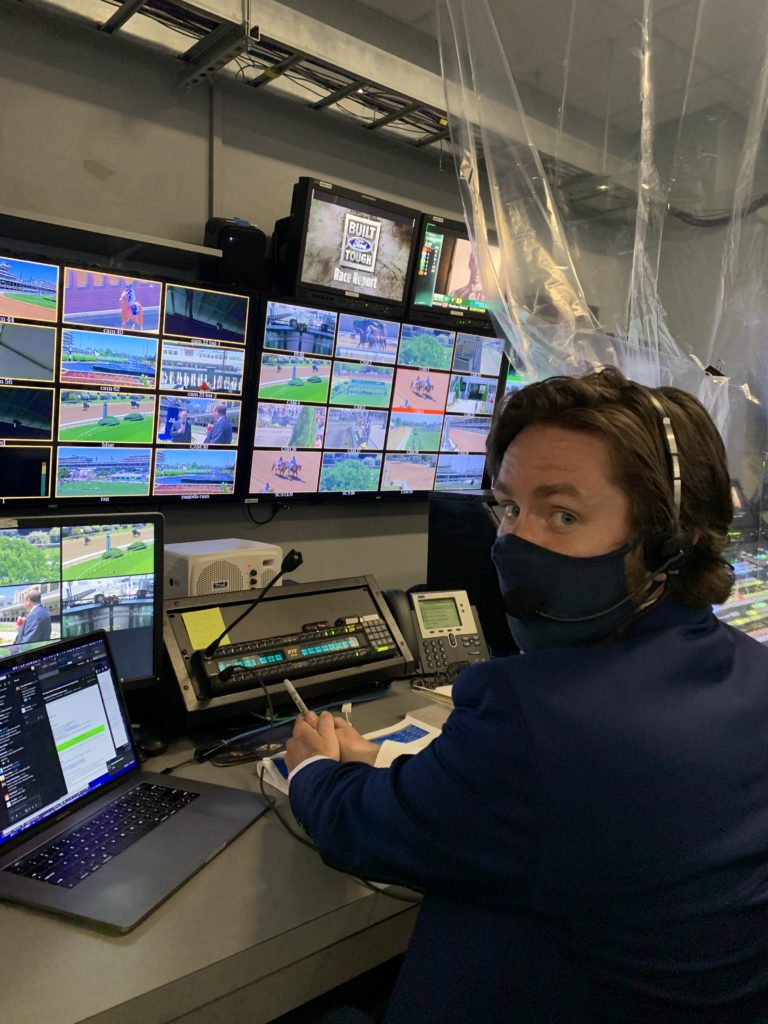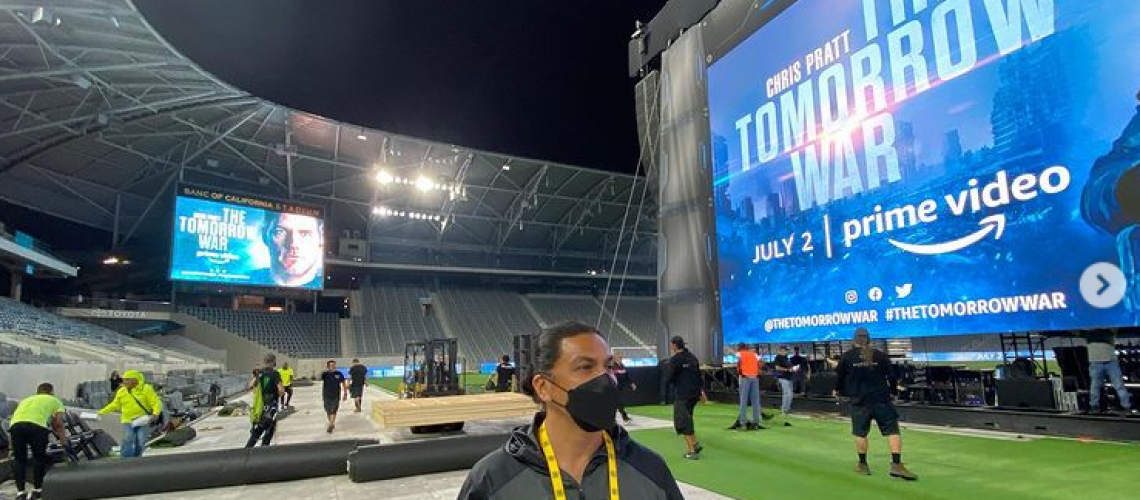When the pandemic hit, event organizers had to tap into their creativity and resourcefulness on a level they could have never imagined, salvaging scheduled events, and ultimately, their entire industry. The result has not only presented new and exciting ways to connect on a global scale, but also generated unique job opportunities for those looking to work in the event industry.
Discover the top 10 event industry careers that will take the quality of events in the new normal to a whole new level.
Related: 2021 Event Planning: Virtual & Hybrid Event Innovation
How Sheltering in Place Changed Events Forever
The future of events brings new opportunities for unique, exciting experiences as planners continue to experiment with and merge live, virtual, and hybrid event models. Here are a few examples:
Outdoor Events

As temperatures rise, so do the number of live outdoor events. Corporate groups and companies are organizing private outdoor excursions to resume team-building and business-related activities. This surge in smaller outside gatherings is expected to continue and expand into larger events as the year goes on.
Are you curious about how Van Wagner creates memorable experiences? Explore some of our past event productions.
Virtual Events
From private meetings to multi-day international events, organizers and businesses now have access to novel digital technologies that can recreate a compelling live experience to a potentially limitless number of participants. Virtual event platforms provide a treasure trove of features that inspire engagement and virtual interactions the audiences expect and deserve.
Hybrid Events

Even with the gradual return to live events, the hybrid approach is holding strong, combining the unique elements from both live and virtual events into one captivating experience for all. The digital component of a hybrid event will continue to reach a much larger audience, while the live aspect will allow a welcomed opportunity to connect in-person for those who are willing and able.
Related: What Is a Hybrid Event, and How Do They Work?
10 New Event Industry Careers
The recent global events have merged industries and workforces together in unprecedented ways, creating special roles and nuanced responsibilities as a result. Here are a few new job titles that event organizers can expect to see and need in the post-pandemic era.
1) Event Tech Expert

With the ever-changing advances in technology, event planners don’t have the time or knowledge to tackle the tech side of an event. And with the added virtual component of most events, one or more event tech experts are now a core part of the event planning team.
Tech experts can have a range of expertise and are usually responsible for managing everything from event platform features to audio/visual equipment to special effects. Event tech experts also play a critical role in scoping out the venue site to determine what technology is needed to bring the organizer’s vision to life.
2) Social Media Event Coordinator
If there was such a thing as “the hottest new position,” this would be it. But that’s not to say the role has no depth, to the contrary. Social coordinators must understand how to navigate all platforms effortlessly, equipped with a knack for expanding a brand’s social presence in numbers, engagement, and influence.
3) Meeting Designer
In line with the overall objectives of the event, meeting designers’ primary focus is to optimize the customer experience. Using tools to enhance cognitive learning and psychological and emotional well-being, designers aim to improve learning outcomes and impact long-term behavior change.
4) Digital Concierge
A digital concierge sounds indulgent, but it’s a great tactic for hosts to up level the customer experience, plus it just sounds good. A digital concierge would attend to guests’ needs- through an app or online- helping with logistics, food and entertainment suggestions, and any other service they might need during the event.
5) Conference Architect
This role might seem obscure, but it’s gaining traction in the event industry. An event architect approaches the event from a bird’s eye view, using event objectives and ROI to guide the optimizations of all planning and implementation processes from the outside in.
6) Digital Analytics Manager
The amount of data that organizers have access to is as valuable as it is expansive. But finding the time to compile, analyze, and summarize concrete ways to put data to use requires a skill set (and time) that few event staff have, which is precisely why this new role is in high demand.
7) Event Videographer

Video content was already becoming a staple in the world of events before the world went virtual. Now, every aspect of an event is likely to have some form of video content attached to it in addition to the event itself, which needs to be recorded for on-demand and repurposed content. Talented videographers who are proficient in virtual and hybrid events are now in high demand!
8) Customer Experience Manager
Having a team member dedicated solely to elevating the customer experience is a wise investment, given the customer is the ultimate gauge and determinant of an event’s success. This role could entail almost anything and look vastly different from day to day, just as long as the result is a satisfied customer.
9) Live Feedback Manager
With all the various online communication channels, tracking and responding to all the questions, comments, and feedback can easily turn into a full-time job. A feedback manager can stay on top of all communication in real time, helping the audience get the information they need and quickly resolve any issues that might otherwise fall through the cracks.
10) Virtual Event Planner
This role is largely a result of resourceful event managers who learned how to sink or swim when the pandemic hit. Almost overnight, virtual event planners had to not only learn how to transition all components of live events over to a virtual landscape, but they also had to lead their teams and participants through the process as gracefully as possible.
Related: The Ultimate Guide To Planning Your Virtual Trade Show for Success
Bonus: Here are Three More New Event Industry Careers

In addition to the pandemic, global issues and movements have resulted in the need for more thoughtful approaches to event planning. The following positions help event planners implement strategies that are in the best interest of both their participants and the environment.
Diversity Coordinator
As global reach and awareness expand, it’s more important than ever for organizers to prioritize diversity and culture in event planning and implementation.
A diversity coordinator works to ensure there is equal access and a wide variety of backgrounds and perspectives represented in the staff, content, and speaker line-up.
Event Sustainability Coordinator
There is an increasing demand and obligation for event planners to reduce their environmental footprint. An event sustainability coordinator helps identify and source ways to reduce waste and promote environmental-friendly practices during every stage of an event.
Manager of Security
The manager of event security assesses and identifies any potential safety threats that could arise during an event. Their role includes rolling out policies and procedures, briefing staff safety measures, setting up any necessary checkpoints and stations, and providing additional protection needed for high-profile guests.
The Last Word on New Event Industry Careers
Along with all the advances in technologies, the event world is seeing an increase in innovative job roles requiring a wide range of talent and skills. No longer confined to planning and logistics, a career in the event industry has expanded to include unique, nuanced opportunities that will further enhance the planning process, and more importantly, the participant’s experience.
If you have any questions on how to manage events or would like a partner to make your next hybrid or virtual event memorable, reach out to us and we will respond as soon as possible.


